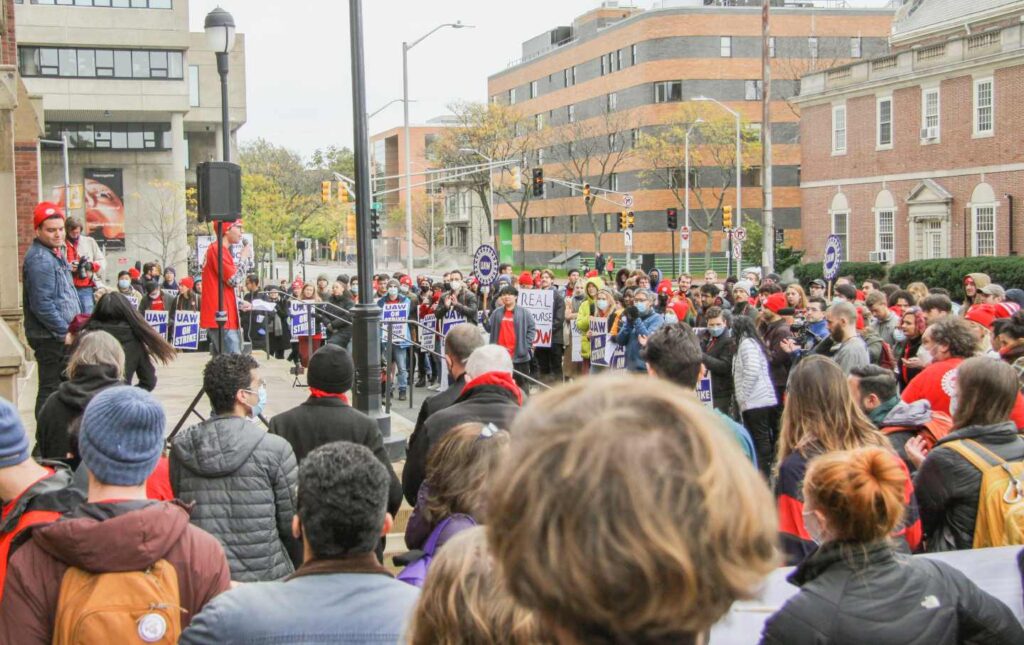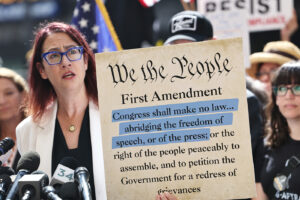August 21, 2025
Trump’s War on Higher Ed Comes to the Bargaining Table
By Nic Wong
As two of the nation’s largest private graduate student unions fight for new contracts, their members have been among the most vulnerable to the president’s attacks on universities.

Workers in Columbia and Harvard graduate student unions were on tenterhooks. After a month of student detainments and discipline—including the expulsion of Columbia’s graduate union president, Grant Miner, the day before contract negotiations were set to begin—representatives headed to the bargaining table on March 28 hoping to forge ahead in negotiations. But they emerged from heated sessions without having discussed a single contract article or finalized ground rules. Since then, both unions’ contracts have expired, with no resolution in sight.
The March session set the tone for what has become an increasingly fraught round of contract negotiations for two of the nation’s largest private graduate student unions—uniquely impacted by Columbia’s and Harvard’s touch-and-go tangos with President Donald Trump’s administration. Harvard’s graduate students may continue bargaining into 2026, and Columbia and its graduate student union—faced with a stall in negotiations—have been sparring over a potential contract extension but have yet to reach an agreement.
Since 2012, the number of graduate students represented by a union has more than doubled, ballooning from 64,000 to 150,000 by the beginning of 2024. These workers are often international scholars, and researchers buoyed by federal dollars—precisely the demographic most vulnerable to the Trump administration’s high-profile attacks on universities.
But even as the public lauded Harvard for delivering a resounding legal rejoinder to the Trump administration’s demands, union members at both Harvard and Columbia say administrators are mounting bargaining-table battles against their own workers, harnessing changes in the National Labor Relations Board to gain an upper hand. Under a Republican NLRB, it’s possible private-sector student workers will lose their right to unionize altogether.


